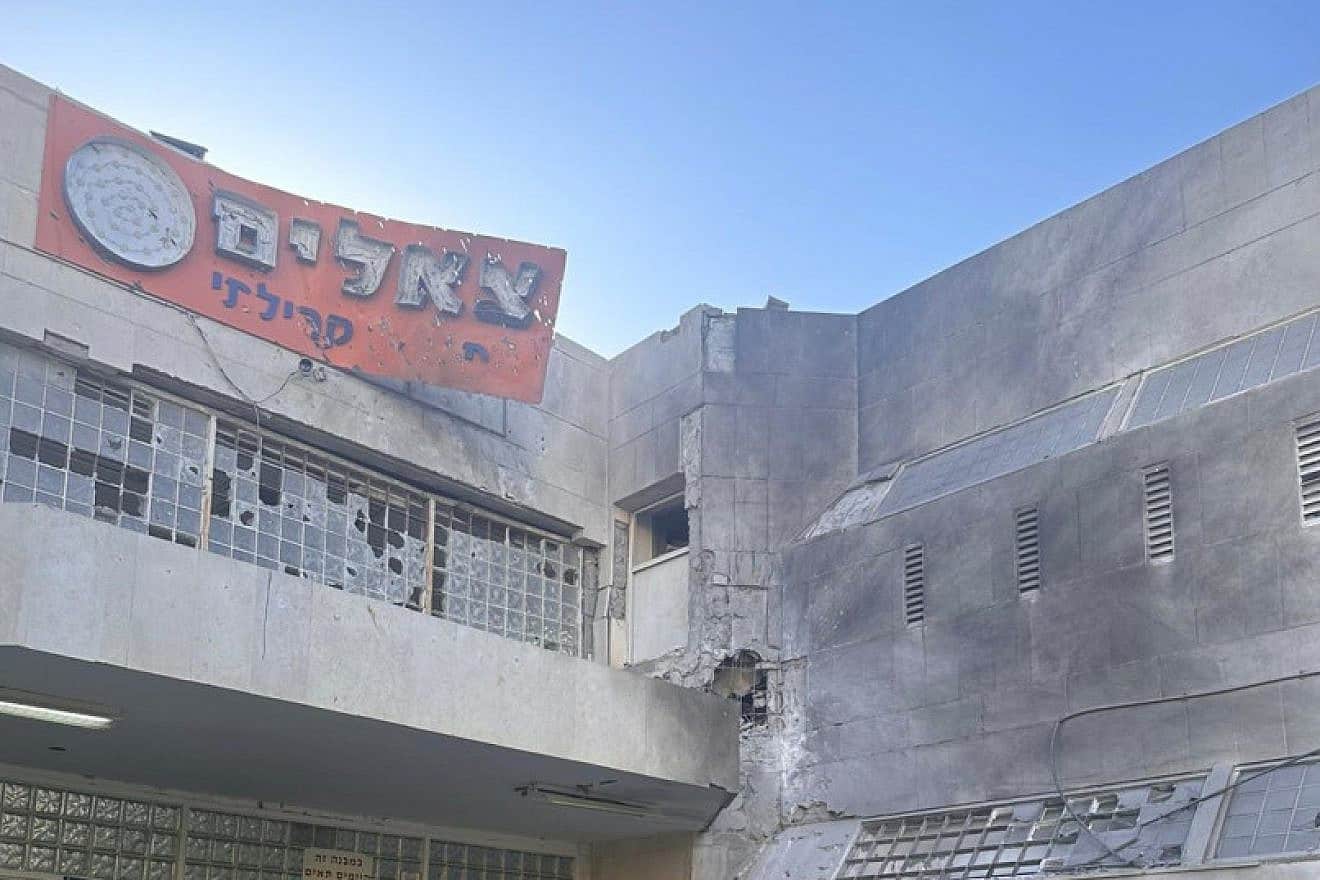Radical Shi’ite militias in Iraq, backed by Iran, must not be trivialized, Israeli observers cautioned in recent days, as a drone attack on Eilat on Monday was claimed by the Islamic Resistance in Iraq terror faction.
The drone, which entered Israeli airspace from the east, struck an Israel Defense Forces base in the city, causing light damage and no injuries, according to the IDF.
On Sunday, the Islamic Resistance in Iraq claimed that it had struck a “vital target” in the Galilee in northern Israel using drones. On March 20, 2024, the Islamic Resistance in Iraq claimed responsibility for a UAV attack on Ben Gurion Airport, though there was no evidence that such an attack occurred.
Earlier in March, Iranian state media claimed that the group, acting “in support of the people of Gaza,” hat targeted a power plant in Tel Aviv in a drone attack, and released an image of a suicide drone launch.
An Iranian-backed militia in Iraq reportedly fired an armed drone in the direction of Eilat on December 22, which Jordanian air defenses intercepted.
The Erbil-based Kurdish news website Rudaw described the Islamic Resistance in Iraq at the time of December’s attack as “a network of shadow Iraqi militia groups” associated with the Iranian Islamic Revolutionary Guard Corps.
Speaking prior to Monday’s incident, Danny (Dennis) Citrinowicz, a senior research fellow at the Tel Aviv-based Institute for National Security Studies, told JNS that it would be a mistake to dismiss threats and statements by Shi’ite militias regarding attacks on strategic sites in Israel.
While the gap between some of the previous statements by the militias in Iraq and what actually occurred could tempt observers to trivialize the threat, “We must not dismiss it,” said Citrinowicz.
“In recent years, the build-up of the militias in Iraq has accelerated, including, according to the militias, self-production of capabilities in the field of rockets and missiles. With the generous help of Iran and as part of the desire to push the American presence out of the country, the Shi’ite militias dramatically upgraded their military capabilities, while significantly tightening their connection with Hezbollah,” he stated.
The Iranian-backed Iraqi Popular Mobilization Forces, which recently threatened the 2,500 U.S. forces stationed in the country, is a member of the Iranian-backed radical axis, and cooperates with Hezbollah, as well as with Shi’ite militias in Syria.
One PMF group, the Golan Liberation Brigade, was as its name suggests set up to fight Israel. Some of the Iraqi militias are also active in Syria, such as Harakat Hezbollah al-Nujaba, which is activated by the Iranian Quds Force.
“Alongside the build-up of power in Syria, the militias are deepening their hold in the east of Syria and strengthening their control over the border crossings, including Abu Kamal,” said Citrinowicz, in reference to a border area that has been used by Iran and its proxies frequently to transport weapons and terrorists, and which has been targeted by airstrikes on a regular basis.
It is clear, he added, that these militias’ attempts to attack Israel “indicate capabilities and intentions, even if they are still lower than Hezbollah.”
As a result, Citrinowicz warned that sooner or later, Israel will need to look at ways to “deal” with the growing threat from Iraq. “Moreover, the current friction with Israel could lead the militias to perceive a strike in Israel as something ‘legitimate,’ and therefore, even after the war ends, the firing from Iraq may resume as a response to [future] military activity,” he cautioned.
Professor Eyal Zisser, vice rector of Tel Aviv University and chair in Contemporary History of the Middle East, said the Iraqi militias possess “capabilities that the Iranians provided them,” adding that their rockets and missiles have been used to attack American bases in Syria and Iraq.
“Assuming that the Iranians gave missiles to the Houthis in Yemen, there’s no reason the Iranians wouldn’t likely give them to them [the Iraqi militias] as well,” Zisser argued.
Zisser, who also spoke prior to Monday’s attack, said previous announcements by Shi’ite militias about attacks on Israel “indicate an intention to attack without a doubt,” and that while previous attempts to hit Israel may have fallen short or were intercepted, “What’s important is that they have basic capability and intent.”


























